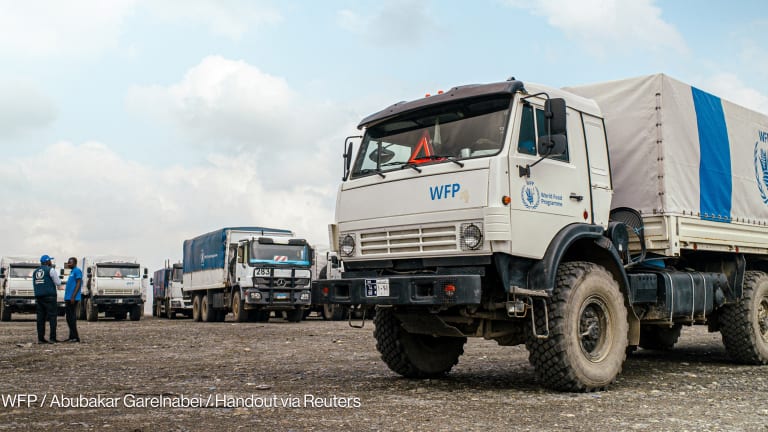
The United Nations has accused Tigray’s military forces of stealing 12 fuel trucks, containing 570,000 liters of fuel from a World Food Programme warehouse in Mekele, Tigray’s capital, on Wednesday.
This fuel was intended “solely for humanitarian purposes with the distribution of food, fertilizer, and other emergency relief items,” said Stéphane Dujarric, spokesperson for the U.N. secretary-general during a press briefing Wednesday.
“Millions will starve if we do not have fuel to deliver food. This is OUTRAGEOUS and DISGRACEFUL. We demand return of this fuel NOW,” tweeted WFP chief David Beasley.
In a statement released by WFP, the agency said that the fuel had recently been purchased by WFP and arrived days before it was “forcibly seized” by a group of armed men.
The government of Tigray released a statement in response calling Beasley’s accusations “an unhelpful public outburst.” It said that a few months ago it loaned WFP over 600,000 liters of fuel, with the understanding the government would be paid back in-kind and that it “simply demanded that it be paid back in accordance with the agreement we had,” adding that WFP was “unilaterally revising the terms of the deal.”
It said the fuel will be used “to run basic services, such as hospitals, clinics and other health facilities across Tigray that have been looted, and damaged by the invading forces.”
This comes as Ethiopia's military launched the first large-scale offensive on Tigray in a year on Wednesday. Tigray’s forces have been at war with the Ethiopian government since the end of 2020, but there had been a lull in fighting in Tigray amid peace talks.
Longstanding fuel shortage: The region has faced severe fuel shortages throughout the conflict that have significantly curbed the ability of humanitarian agencies to distribute aid throughout the region, which is experiencing high levels of food insecurity and malnutrition.
According to a situation report published by the U.N. Office for the Coordination of Humanitarian Affairs on Aug. 5, the total amount of fuel that entered the region since the beginning of April, after a humanitarian truce was declared, is about 1.8 million liters. But an estimated 2 million liters are needed each month for humanitarian operations, it said.
On Aug. 9, WFP said fuel shortages contributed to the agency only distributing food to about half the people it planned to reach in a recent food allocation.
Beyond fuel shortages, the government has blocked banking and telecommunication services in Tigray and The Guardian reported that Tigrayan authorities have restricted, blocked, and confiscated the flow of remittances into the region.
Update, Aug. 25, 2022: This piece has been updated with details from statements from the government of Tigray’s office and WFP.








